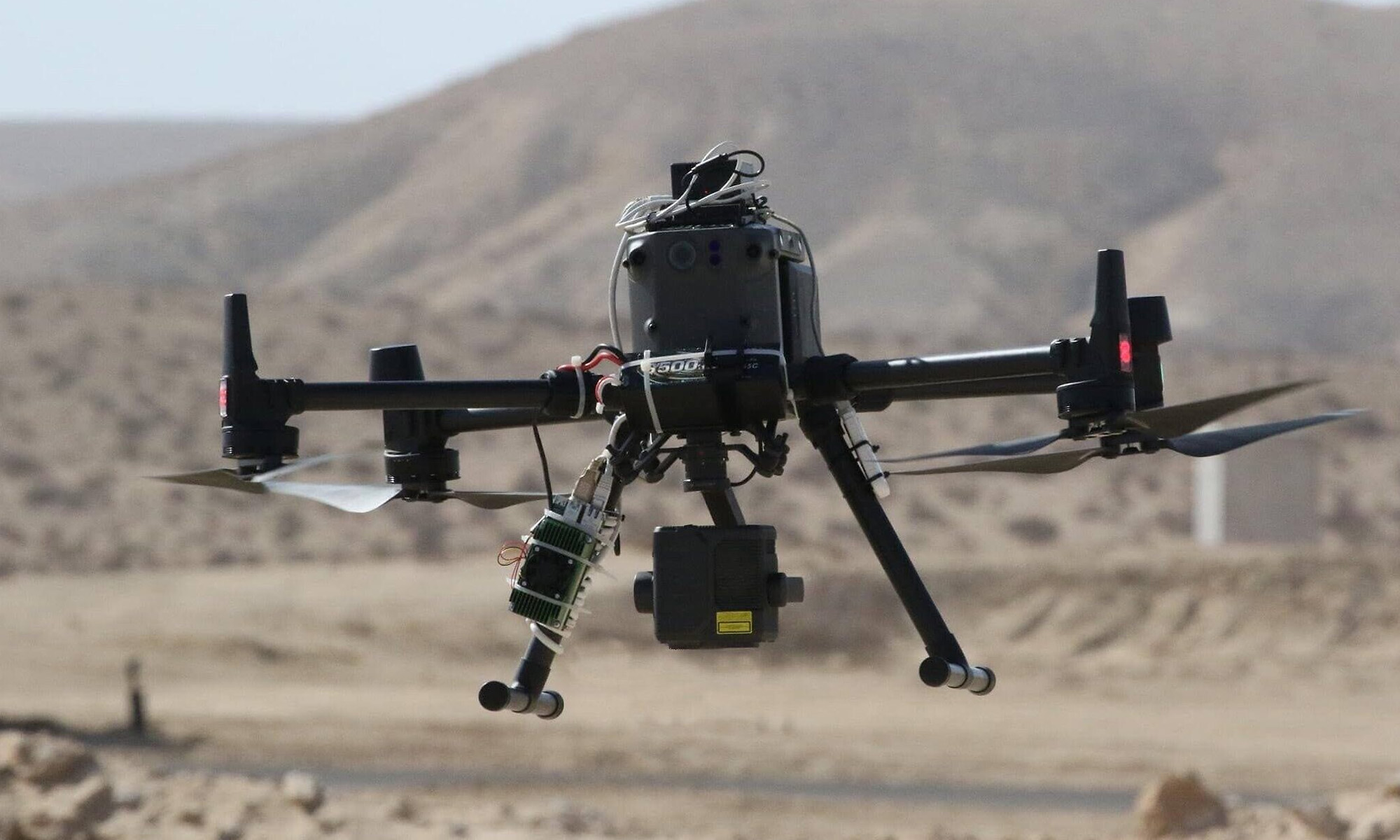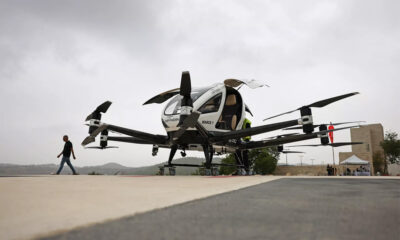News
Sightec Completes First Drone Delivery Without GPS

Some of the world’s largest retailers and e-commerce companies are actively exploring the potential of drones to deliver goods across short to medium distances. Now, Israeli startup Sightec has successfully completed its first drone delivery without GPS.
Instead of location signals provided by satellites, the drone relies on a software solution combining computer vision with artificial intelligence technologies, called NaviSight, to autonomously get to its destination.
NaviSight is compatible with all camera-equipped off-the-shelf drones. With the help of advanced video processing, the software essentially transforms the camera into a smart sensor, allowing the drone to understand its surroundings and identify its location in real-time.
“We give drones the ability to get from point A to point B safely without the need for GPS signals,” said Roy Shmuel, the CEO of Sightec. “There is no available solution today for players globally,” he added.
The test was part of a pilot program operated by Israel’s Ministry of Transport (MOT), Ayalon Highways, the Civil Aviation Authority of Israel (CAAI), and the Israel Innovation Authority. The goal of the program is to test and demonstrate the viability of autonomous drones in managed airspace.
During the test, Sightec successfully navigated the drone on five pre-determined routes near the southern city of Yeruham. “The drone completed each route safely, from take-off to full landing, over desert and construction sites,” said Shmuel.
Also Read: Apple Likely To Release 8K VR Headset In 2022
Not depending on GPS for navigation is important because GPS satellites can malfunction, and the signals transmitted by them can be disrupted by malicious hackers. Without an alternative navigation method, it would be safe to use drones for deliveries and other purposes in populated areas because they could lose signal and endanger people, buildings, and vehicles.
Shmuel also said that the test is an important step toward the legalization of drone delivery operations in Israel and other regions. However, more test flights still need to be conducted in other parts of the country before the technology is ready for prime time.
News
Rabbit Expands Hyperlocal Delivery Service In Saudi Arabia
The e-commerce startup is aiming to tap into the Kingdom’s underdeveloped e-grocery sector with a tech-first, locally rooted strategy.

Rabbit, an Egyptian-born hyperlocal e-commerce startup, is expanding into the Saudi Arabian market, setting its sights on delivering 20 million items across major cities by 2026.
The company, founded in 2021, is already operational in the Kingdom, with its regional headquarters now open in Riyadh and an established network of strategically located fulfillment centers — commonly known as “dark stores” — across the capital.
The timing is strategic: Saudi Arabia’s online grocery transactions currently sit at 1.3%, notably behind the UAE (5.3%) and the United States (4.8%). With the Kingdom’s food and grocery market estimated at $60 billion, even a modest increase in online adoption could create a multi-billion-dollar opportunity.
Rabbit also sees a clear alignment between its business goals and Saudi Arabia’s Vision 2030, which aims to boost retail sector innovation, support small and medium-sized enterprises, attract foreign investment, and develop a robust digital economy.
The company’s e-commerce model is based on speed and efficiency. Delivery of anything from groceries and snacks to cosmetics and household staples is promised in 20 minutes or less, facilitated by a tightly optimized logistics system — a crucial component in a sector where profit margins and delivery expectations are razor-thin.
Despite the challenges, Rabbit has already found its stride in Egypt. In just over three years, the app has been used by 1.4 million customers to deliver more than 40 million items. Revenue has surged, growing more than eightfold in the past two years alone.
Also Read: Top E-Commerce Websites In The Middle East In 2025
CEO and Co-Founder Ahmad Yousry commented: “We are delighted to announce Rabbit’s expansion into the Kingdom. We pride ourselves on being a hyperlocal company, bringing our bleeding-edge tech and experience to transform the grocery shopping experience for Saudi households, and delivering the best products – especially local favorites, in just 20 minutes”.
The company’s growth strategy avoids the pitfalls of over-reliance on aggressive discounting. Instead, Rabbit leans on operational efficiency, customer retention, and smart scaling. The approach is paying off, having already attracted major investment from the likes of Lorax Capital Partners, Global Ventures, Raed Ventures, and Beltone Venture Capital, alongside earlier investors such as Global Founders Capital, Goodwater Capital, and Hub71.


























